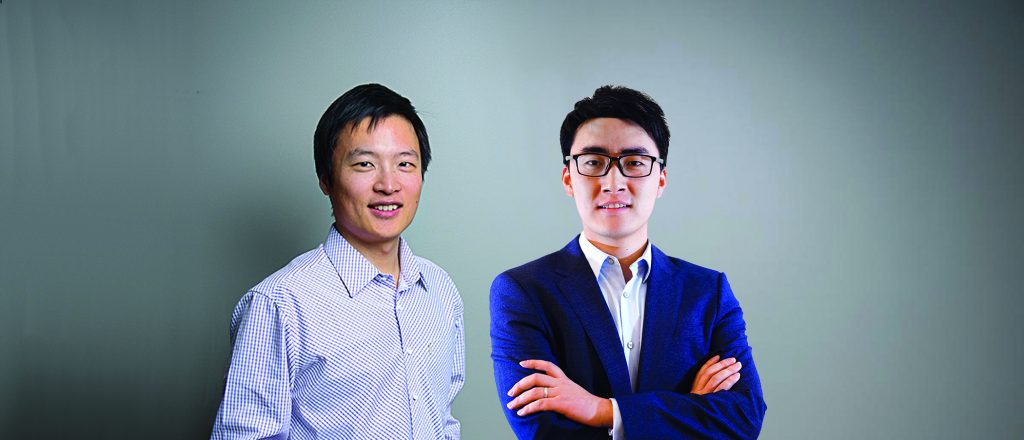
In 2014, when Microsoft founder Paul Allen opened the Allen Institute for Artificial Intelligence, the first startup to take residence was a small company out of the Center for Language and Speech Processing at the Whiting School of Engineering.
The company, known as KITT.AI, had drawn global attention for its pioneering work in natural language processing—algorithms that recognize spoken language.
Among the company’s founders were two then doctoral candidates, Xuchen Yao, PhD ’14, studying computer science, and Guoguo Chen, MS ’13, PhD ’16, studying electrical engineering, who had entered the field out of sheer curiosity—“It’s fun,” Yao says—and ended with a hot startup on their hands.
KITT.AI soon had funders lining up, including Allen, Amazon, and Johns Hopkins’ own student-led A-Level Capital. Last year, the KITT.AI team realized the dream of every entrepreneur when Chinese search giant Baidu bought them outright. “When we got into language processing, it was not even called ‘artificial intelligence,’” Yao says. “We just wanted to solve some key problems of language understanding.”
The company is best known for its 2016 releases, such as Snowboy, a “hotword” engine; NLU, a multilingual understanding engine; and ChatFlow, a conversation engine. Tens of thousands of developers now use KITT.AI in their voice-based apps.
Most notable about KITT.AI, however, was that unlike most startups, it had income and, better still, profit. “Making algorithms for scientific citation is one thing, but making revenue is a totally different challenge,” Chen says.
KITT.AI still exists as a subsidiary of Baidu, continuing its existing business while pursuing new avenues with Baidu. And Yao and Chen have not forgotten where it all started. After founding the company, they added classmate Yuan Cao, PhD ’15, who studied electrical engineering, to the team as chief scientist. Yao, Chen, and Cao recently made a considerable gift to the Whiting School to create the KITT.AI Student Seminar Series and External Seminar fund. The gift will bring noted speakers to Johns Hopkins to inspire and encourage current students. “It’s our way of saying, ‘Your peers have started successful businesses; so can you,’” says Chen.
Not to be downplayed in the gift, Yao is keen to note, is a provision that refreshments be served at all seminars. The entrepreneurs are not so far removed from the days when they were hungry students and seminar refreshments were cut to save money. “If you don’t understand the value of free food to graduate students, you don’t understand graduate students,” Yao jokes. “We went to seminars because of the food.”
In the end, however, it all comes back to giving back to all those who have helped along the way. “We couldn’t have done it without the education and training from the Whiting School, especially from our advisers and professors at CLSP,” Yao says. “They helped craft who we are today.”




